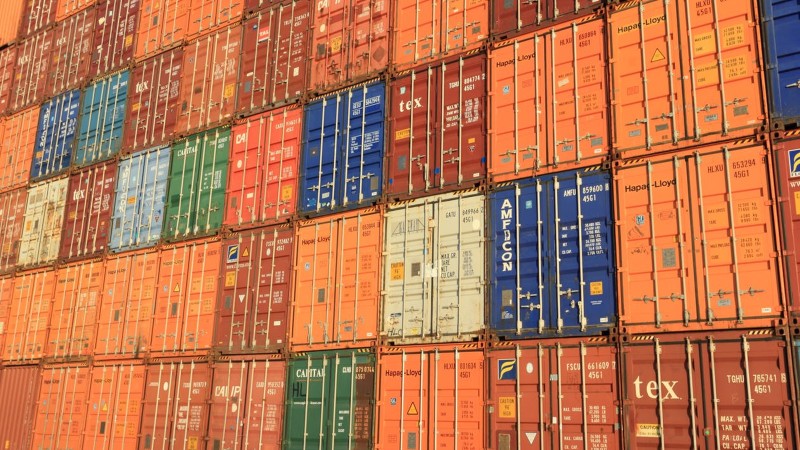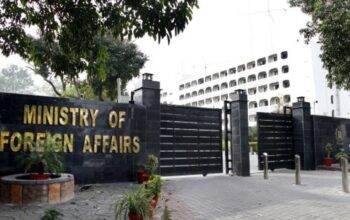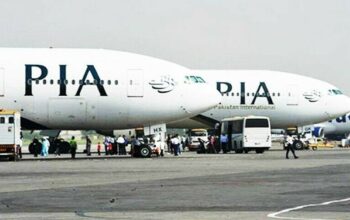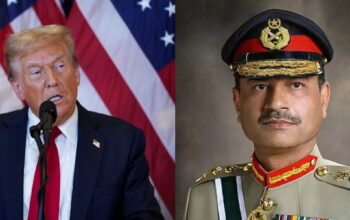Pakistan’s new government is finally astir to rescue the country from dire economic straits
By Staff Reporter
ISLAMABAD: Prime Minister Shehbaz Sharif’s administration Thursday slapped a ban on luxury imports as a step towards balancing the country’s broken budget, demonstrating it means business when it comes to redressing the country’s festering economic woes.
Backed by Pakistan Democratic Front (PDM) – an 11-party coalition of political parties from across the country’s political spectrum – PM Sharif took a lot of flak over the last couple of weeks for his inaction in the face of the deepening crisis.
One of the key issues plaguing Pakistan’s economy is the country’s gargantuan trade deficit, contributing to a record-breaking current account deficit during the current fiscal.
Energy imports including POL products and RLNG are a major contributor to Pakistan’s import bill, which soared to a staggering USD 65 billion over the first 10 months (July-April) of the current fiscal year. Projections show it will be somewhere between USD 75 to USD 78 billion by the end of the fiscal year on 30 June 2022.
The import bill for POL products doubled in first nine months, powered by the soaring international prices and the lifting of the shutdowns prompted by the Covid-19 global pandemic.
Other essential imports include commodities such as wheat, pulses, palm oil and cotton; and industrial machinery, raw material, and intermediate goods for export-oriented industries.
The most talked about of the measures mooted to balance the budget was the abolition of a fuel subsidy the recently ousted government had committed with the International Monetary Fund (IMF) to withdraw but then gone back on its commitment.
One of the key sticking points was the unwillingness of PM Sharif, President of Pakistan Muslim League-Nawaz (PML-N), to go that route, something his cabinet and party colleagues made no secret of. At least for now, he seems to have delivered on his promise, instead resorting to import restrictions.
Under World Trade Organisation (WTO) rules, member countries facing a balance of payment crisis are allowed to temporarily limit or ban imports for a short and specified timeframe.
Independent Pakistan report that Pakistan’s team negotiating the revival of the stalled IMF program has shared a list of the items attracting the ban with the Fund review mission on the course of their talks in Doha (Qatar).
The Fund’s stamp of approval would mean precluding the possibility of running afoul of the WTO rules governing such restrictions.
The government move to impose import restrictions is a vindication for the position of veteran economist and former economic advisor Dr Ashfaque Hassan Khan, who has cried himself hoarse over the last four years advocating a ban on luxury imports.
Media reports often quoted him say import compression was necessary to save dollars. A dollar saved is a dollar earned, he would say. His entreaties, however, fell on deaf ears under the watch of the now ousted Prime Minister Imran Khan, and it took Prime Minister Shehbaz Sharif to supplant Imran Khan in power for Dr Khan’s vision to materialise.
While import restrictions are likely to help Pakistan balance the budget in the short run, this stopgap measure is no substitute for sound long-term economic reform.
The bigger problems Pakistan needs to address include a lack of diversity of products, protectionism, and non-availability of exportable surplus. Only after overcoming these problems can Pakistan’s exports generate adequate foreign exchange to offset the country’s import bill.
Experts say diversification of products and markets is essential for Pakistan to increase exports. The country’s existing base of products is textile-heavy, but it will be unrealistic to expect exports of textile made ups to soar in the short run to levels adequate to offset imports.
Pakistan needs a to fetch approximately USD 50 billion from exports in the short run and USD 100 billion in the medium to long run to put its economy no an even keel.
Remarkably, the SRO targets automobile CBUs but leaves out CKU (complete knocked-down units) and SKU (semi knocked-down units). This may be an indication it represents partial strategy, with more measures fine-tuned the needs of those subsectors yet to come.
The duration of the ban has also been left unspecified, although it is unlikely to stay beyond three or four months. Monthly forex savings from this SRO are estimated to be in the vicinity of USD 200 million.
The items targeted by the ban include aerated water and juices, auto completely built units (CBUs), sanitary and bath room waves, carpets excluding Afghanistan, chandeliers and lighting devices or equipment, chocolates, cigarettes, cosmetics and shaving items, tissue papers, crockery, decoration/ornamental articles, dog and cat food, doors and window frames, fish, footwear, fruits and dry fruits, furniture, home appliances CBUs, ice cream, jams, jellies and preserved fruits, luxury leather, jackets and apparels, mattress and sleeping bags, frozen or processed meat, mobile phones CBUs, musical instruments, pasta, arms and ammunitions, shampoos, tomato ketchup and sauces, sunglasses, travelling bags and suitcases.
The SRO may be read in its entirety below.
Copyright © 2021 Independent Pakistan | All rights reserved




